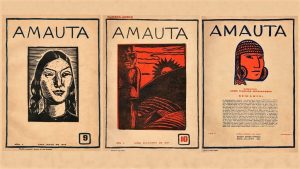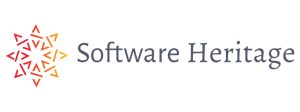|
ISSN Newsletter n° 115 - date à écrire
|
|
 ISSN news |
|
|
ISSN International Centre @NISO + 2023 (14-16 February 2023, remote)
|
The 2023 NISO+ Conference focused on persistent identifiers (PIDs)! Gaelle Bequet, Director of the ISSN International Centre, moderated one session about the fragmentation of the PID landscape and the recommendations made by Knowledge Exchange in their latest report to implement PIDs. She spoke at the session dealing with the interoperability and the diversity of PIDs . Last but not least, she moderated the session about PIDs for humanities researchers.
|
|
|
|
|
ZBW is official archive partner for ISSN International Centre and Keepers Registry
|

The international cooperation between ISSN International Centre and ZBW is expanding in the context of digital preservation. The ZBW is the first German academic library to become a “Keeper” for the ISSN International Centre. The ZBW is responsible for the digital preservation of nearly 2,000 journals and other serial resources in economics and will list them in the ISSN Portal. Digital preservation at the ZBW has been awarded the international Core Trust Seal in 2020 and is the first institution in Germany to have achieved three certifications: the Data Seal of Approval, the nestor-Seal and also the CoreTrustSeal.
|
|
|
|
 Digital preservation |
|
|
Library of Congress Digitization Strategy: 2023-2027
|
The Library of Congress has a new Digitization Strategy for its collections. The Strategy is intended to produce the following major results over its five-year life:
– Move toward a digital-forward and e-preferred acquisitions model.
– Support broad, diverse and inclusive collecting.
– Improve service and access for users.
– Modernize IT infrastructure to improve workflows and processes.
– Support digital collections workforce development.
|
|
|
|
 Libraries |
|
|
Digital Inclusion in Africa: The Role of Libraries and Information Centres (IFLA Webinar)
|

The IFLA’s Sub-Saharan Africa Regional Division Committee explores the contribution that libraries can provide to making a reality of an inclusive internet and broader digital environment. Libraries and librarians have continuously advocated for inclusive and equitable access to knowledge and information resources. Around the world, the digital divide is a common reality – particularly in Sub-Saharan Africa where data from the World Bank indicate that Internet penetration for individuals is hovering around 30% of the population. Despite the accelerated digitalisation of societies and economies during the Covid-19 pandemic, Sub-Saharan Africa is still the region with the widest coverage gap.
|
|
|
|
|
Amauta (ISSN 1017-9828) becomes a National Landmark Magazine in Peru
|

The complete collection of the magazine Amauta: doctrina, arte, literatura, polémica (1926-1930) archived by the National Library of Peru (BNP), has been declared Cultural Heritage of the Nation, through the Ministry of Culture. This collection, made up of 32 volumes, presents unique features such as exlibris and stamps of Peruvian intellectuals.
|
|
|
|
|
The National Library Board of Singapore releases an open dataset for digitized magazines and other materials
|
The National Library Board of Singapore has just released 10 datasets comprising the metadata of their digitized collections. The digital library comprises over 42,000 digitized books, magazines, newspapers, web archives, images, sound and video recordings. A data API is available to query and retrieve descriptive data including ISSNs.
|
|
|
|
|
Watch the IFLA Webinar From ISBD to ISBDM: A Bibliographic Standard in Transformation!
|
The IFLA ISBD Review Group has just published the recording and slides of its webinar titled “From ISBD to ISBDM: a bibliographic standard in transformation”, held on 26 January 2023.
|
|
|
|
|
IFLA Elections 2023
|
IFLA has a variety of councils, committees, sections, and special interest groups. Some work at the strategic level while others focus on individual areas of the library and information services profession. To become a candidate, a volunteer should receive the required number of nominations for that position, and complete the nominee form for that position. The deadline for these submitted items is 24 February 2023, 17:00 CET.
|
|
|
|
 Open Science |
|
|
Diagnosis and Roadmap for an Open Science Policy in Argentina
|
In November 2022, the Open Science Advisory Committee of the Ministry of Science in Argentina released its “Diagnosis and Guidelines for an Open Science Policy in Argentina”. The report criticizes the extension of the APC model, “because it implies a growing disparity between researchers and/or their institutions that can afford APCs with respect to of the rest. Likewise, the generalization of the payment of APC is promoting a growing commodification of journals, with the distortions that this can cause in science evaluation processes.” The key role of CONICET, host to ISSN Argentina, in the assessment of researchers’ careers needs to evolve and incorporate in the process a minimum percentage of publications deposited in open access repositories. Publishing in diamond-access Argentinean journals that are indexed and/or belong to the Basic Nucleus of Argentine Journals (CAICyT) should be valued.
|
|
|
|
|
Research papers should be made freely available immediately under open licences as standard in the EU
|
The Swedish Presidency of the Council of the European Union is pushing to implement FAIR (Findable, Accessible, Interoperable and Reusable) principles in all research outputs and across disciplines. This is a significant undertaking for Europe, and it requires changes in research culture and infrastructure. These changes must also align with international partners in like-minded regions and countries, and the ministers exchanged views on whether the EU should take action to accelerate this work.
|
|
|
|
 Open Access |
|
|
Jisc announces partnership with open access publisher Copernicus
|
Jisc has announced a new agreement with Copernicus Publications, a fully open access, not-for-profit publisher, whose portfolio of journals covers engineering, geosciences, humanities, and life sciences. The agreement helps UK institutions streamline administering open access publication, making it quicker and easier. Copernicus uses simple, fair and reasonable article processing charges (APCs) and created one of the first public and fully transparent peer-review processes for academic journals.
|
|
|
|
 Publishing Industry |
|
|
Retrospective and prospective study of the evolution of APC costs and electronic subscriptions for French institutions (Dec. 2022)
|

The authors explain that APCs are mainly applied to articles in biology and medical research. 30% of articles in these fields and having an author affiliated with a French research organization are APC-based. For humanities and social sciences, articles with APCs represent 1% of all articles published.
|
|
|
|
 Scholarly Communication |
|
|
Bibliodiversity does exist in scholarly communication but it is still invisible!
|
By analyzing 25,671 journals largely absent from common journal counts, as well as Web of Science and Scopus, this study demonstrates that scholarly communication is more of a global endeavor than is commonly credited. These journals, employing the open-source publishing platform Open Journal Systems (OJS), have published 5.8 million items; they are in 136 countries, with 79.9% in the Global South and 84.2% following the OA diamond model (charging neither reader nor author). A substantial proportion of journals operate in more than one language (48.3%), with research published in 60 languages (led by English, Indonesian, Spanish, and Portuguese). The journals are distributed across the social sciences (45.9%), STEM (40.3%), and the humanities (13.8%). For all their geographic, linguistic, and disciplinary diversity, 1.2% are indexed in the Web of Science and 5.7% in Scopus. On the other hand, 1.0% are found in Cabell’s Predatory Reports, and 1.4% show up in Beall’s (2021) questionable list.
|
|
|
|
|
Publication and data surveillance in academia
|
Joseph Koivisto and Jordan Sly from the University of Maryland discuss the implications of the publications-as-data model. The core functions of higher education are destined to be quantified and that this data will be harvested, curated, and repackaged through a variety of enterprise management platforms. All aspects of the academic lifecycle, such as research production, publication, distribution, impact determination, citation analysis, grant award trends, graduate student research topic, and more can be sold, analysed, and gamed.
|
|
|
|
|
Knowledge Exchange Report “Building the plane as we fly it: the promise of Persistent Identifiers” has been released
|
This report is the main outcome of a study commissioned by Knowledge Exchange (KE). The study was aimed at investigating “Risks and trust in pursuit of a well functioning Persistent Identifier infrastructure for research”. The investigation set out to analyse the current state of the Persistent Identifier (PID) landscape in the six Knowledge Exchange partner countries and beyond, taking emerging PIDs particularly into account and examining the roles of relevant stakeholders as PID service providers, higher education institutions, researchers, publishers and national libraries. The report examines the PID landscape and provides a detailed look at what can go wrong with an unreliable PID service. In addition, a series of recommendations aimed at each stakeholder group are presented.
|
|
|
|
|
Nobel Prize Summit: Truth, Trust and Hope (Washington D.C., USA; 24-26 May 2023)
|
The Nobel Foundation and the U.S. National Academy of Sciences are organising the second Nobel Prize Summit: Truth, Trust and Hope. They will convene Nobel Prize laureates and other experts, information technology and business leaders, policymakers, journalists, educators, and youth from around the world to engage in constructive dialogue on actively combating the spread of mis- and disinformation, share evidence-based knowledge and global experiences, and help restore trust and confidence in science, institutions and systems of society.
|
|
|
|
 Standards |
|
|
W3C re-launched as a public-interest non-profit organization
|
The World Wide Web Consortium has just formed a new public-interest non-profit organization. The new entity preserves a member-driven approach, existing worldwide outreach and cooperation while allowing for additional partners around the world beyond Europe and Asia. The new organization will develop open web standards as a single global organization with contributions from W3C Members, staff, and the international community.
|
|
|
|
|
Celebrating the achievements of the Software Heritage Project at UNESCO Headquarters (7 February 2023)
|

The Software Heritage project, launched in 2016 by Inria (France), aims at collecting, preserving, and making readily available the source code of all software ever written, building an essential infrastructure at the service of cultural heritage, digital development, science, industry, and society as a whole. Watch the presentations about software source code as documentary heritage and an enabler for digital skills education and innovation.
|
|
|
|
|
New ISO standard published for the Research Activity Identifier (RAiD)
|
ISO 23527:2022 Research Activity Identifier (RAiD) developed by the Australian Research Data Commons (ARDC) has just been published by ISO. RAiD is a persistent identifier for research projects and activities. RAiD connects existing persistent identifiers for researchers, institutions, outputs and tools with key project information to create a timeline of research projects. ARDC delivers other identifiers, i.e. Digital Object Identifiers, Handles, International Generic Sample Number Service (IGSN).
|
|
|
|
 Events |
|
|
GPT-3 and the future of publishing & academia webinar (9 March 2023)
|
GPT-3 produces surprisingly human-like texts that can be very difficult to distinguish from human-produced information. This powerful technology forces academia and publishers to consider some fundamental questions. What opportunities does this next generation of AI give to researchers and publishers, as well as bad actors (e.g. papermills)? And what does it mean for academic work in general? A free STM webinar with perspectives from three sides: technology, publishing, and academia.
|
|
|
|
|